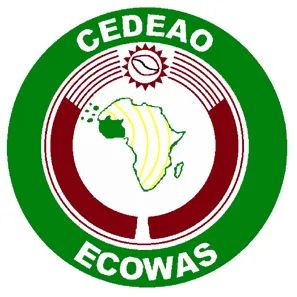Mali, Niger, and Burkina Faso, three Sahel nations plagued by jihadist violence and poverty, have made a significant announcement, withdrawing from the Economic Community of West African States (ECOWAS).
The military regimes of these countries have decided to withdraw from the Economic Community of West African States (ECOWAS). In a joint statement released on Sunday, the leaders of Mali, Niger, and Burkina Faso stated that their decision to leave ECOWAS is a “sovereign decision” and will be implemented promptly.
This move comes as no surprise, considering the strained relations between these countries and ECOWAS following the series of coups that occurred in the region. Last July, Niger experienced a coup, followed by Burkina Faso in 2022 and Mali in 2020. These political upheavals have further exacerbated the already existing challenges of jihadist violence and poverty in the region.
In response to the coups, ECOWAS had suspended all three countries, imposing heavy sanctions on Niger and Mali. This suspension and the subsequent sanctions have only deepened the rift between the Sahel nations and the regional bloc. The military regimes in Mali, Niger, and Burkina Faso have expressed their dissatisfaction with ECOWAS’ approach, arguing that it hinders their ability to address the pressing issues they face.
The decision to withdraw from ECOWAS is seen as a bold and independent move by the Sahel nations. By asserting their sovereignty, Mali, Niger, and Burkina Faso aim to take control of their own destinies and tackle the challenges they face in a manner that aligns with their unique circumstances. However, this decision also carries significant implications for the region’s political landscape and its relationship with ECOWAS.
One potential consequence of this withdrawal is the disruption of regional cooperation and integration efforts. ECOWAS plays a crucial role in promoting economic cooperation, regional security, and political stability among its member states. The departure of Mali, Niger, and Burkina Faso could undermine these efforts and lead to a fragmentation of regional initiatives.
Furthermore, the withdrawal of these countries from ECOWAS raises questions about the effectiveness of the regional bloc in addressing the complex issues faced by its member states. The Sahel region has been grappling with persistent jihadist violence, which has claimed countless lives and displaced numerous people. The absence of a unified regional approach could hamper efforts to combat this grave security threat.
Additionally, the withdrawal of Mali, Niger, and Burkina Faso from ECOWAS may have implications for their international standing and partnerships. ECOWAS provides a platform for its member states to engage with regional and international actors, fostering diplomatic relations and attracting foreign investment. The exit of these countries from the regional bloc could potentially limit their access to these opportunities and hinder their efforts to address economic challenges and attract much-needed investment.
It is worth noting that this decision by the Sahel nations to withdraw from ECOWAS has garnered significant attention and sparked debates within the international community. Experts and analysts are closely monitoring the situation, assessing the potential ramifications on regional stability, security, and development.
The withdrawal of Mali, Niger, and Burkina Faso from ECOWAS signifies a turning point in the region’s political dynamics. It reflects the frustration of these countries with the current approach taken by the regional bloc and their desire to assert their sovereignty. However, the consequences of this decision remain uncertain, and its impact on regional cooperation, security, and development will undoubtedly be closely scrutinized in the coming months.











